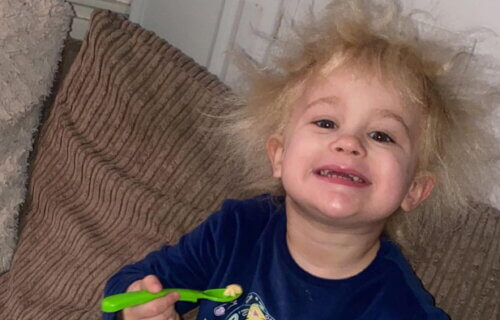GRIMSBY, United Kingdom — What do a toddler and Albert Einstein have in common? The youngster may have the same genetic disorder some believe was responsible for giving Einstein his “crazy” hair.
That’s what Lydia Bunch is saying about her two-year-old daughter, Nellie Butler, who is believed to have a case of Uncombable Hair Syndrome. It’s a rare disorder that means your hair is extremely frizzy and can’t be combed flat.
Only around 100 people worldwide have been officially diagnosed with this genetic condition, according to the Cleveland Clinic. However, researchers add that more cases exist around the globe. It is believed Albert Einstein, the famous theoretical physicist, may have had the disorder.
💡What To Know About Uncombable Hair Syndrome:
- The condition only affects the child’s scalp, causing hair to grow in all directions.
- Most cases start to show around age 3, but it can develop later on in childhood as well.
- There are two ways to test for the condition: a hair shaft test and a genetic test.
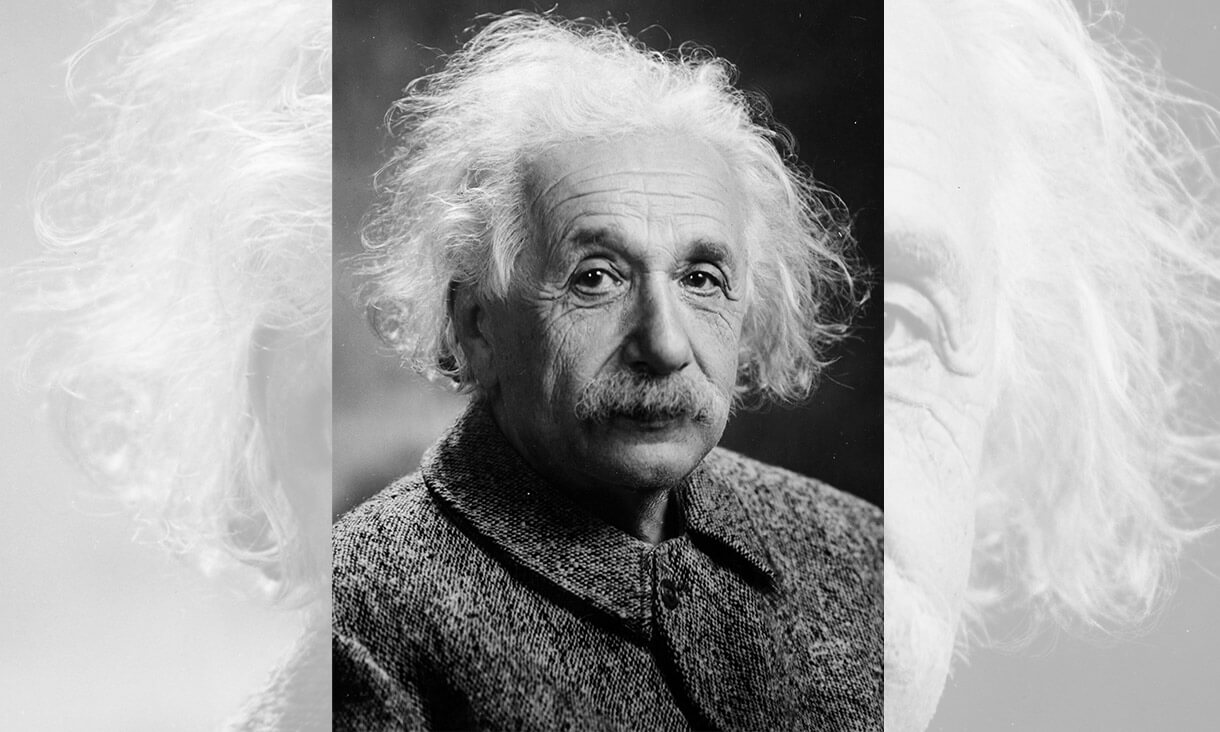
Lydia, 25, says that styling Nellie’s hair is nearly impossible and that she sometimes struggles to get it into a ponytail because “it’s just crazy.”
“She could have her hair just down, but it’s just crazy. I normally try and put her hair in two ponytails. It is quite hard to brush, but luckily it’s easier to brush after she’s had a bath. It’s just hard to get it in a ponytail because it’s just everywhere, so you can’t really do that,” Bunch says in an online video post.
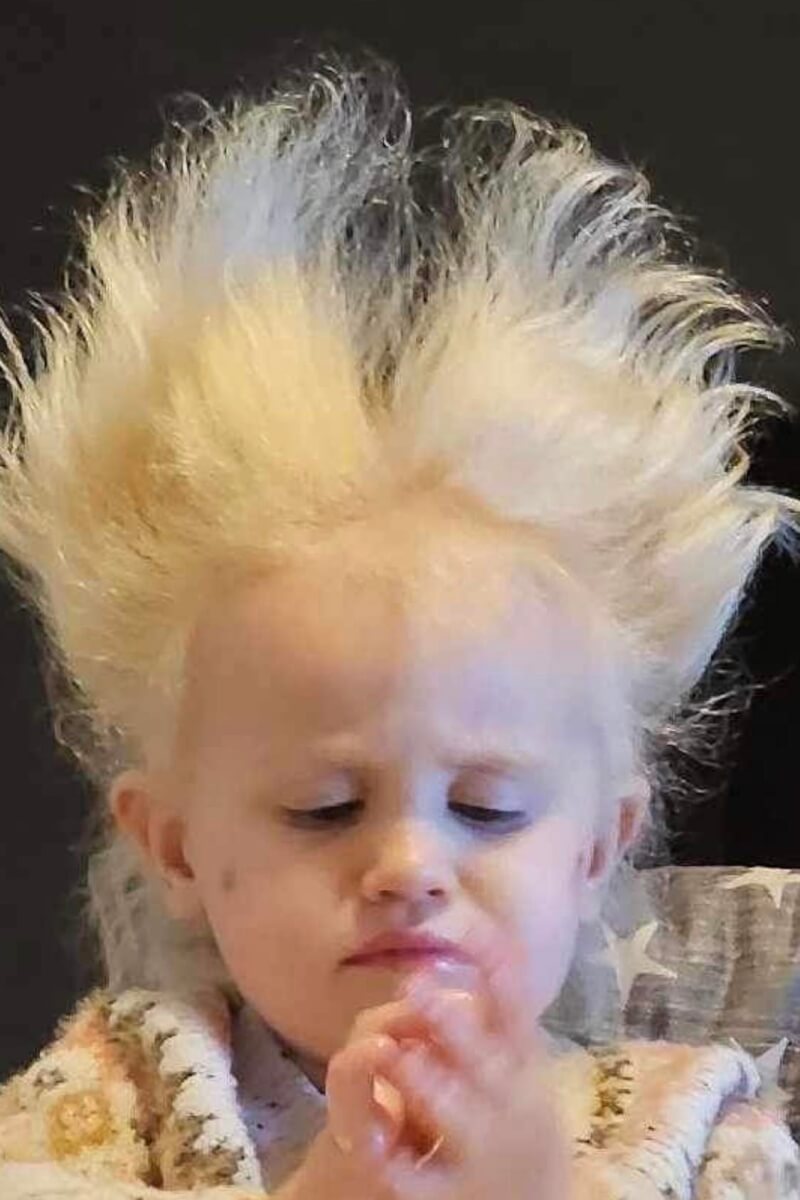
When Nellie was born in April 2021, she had dark blonde hair that then turned to a more ginger color. When she was around nine months-old, however, Nellie’s hair started becoming “really light and almost frizzy.”
“She didn’t have much hair when she was born; it was quite dark blonde, and then it went a bit ginger. She did have little waves in her hair at first. Then, when she was around nine or ten months-old, her hair started becoming really light and almost frizzy,” Bunch says.
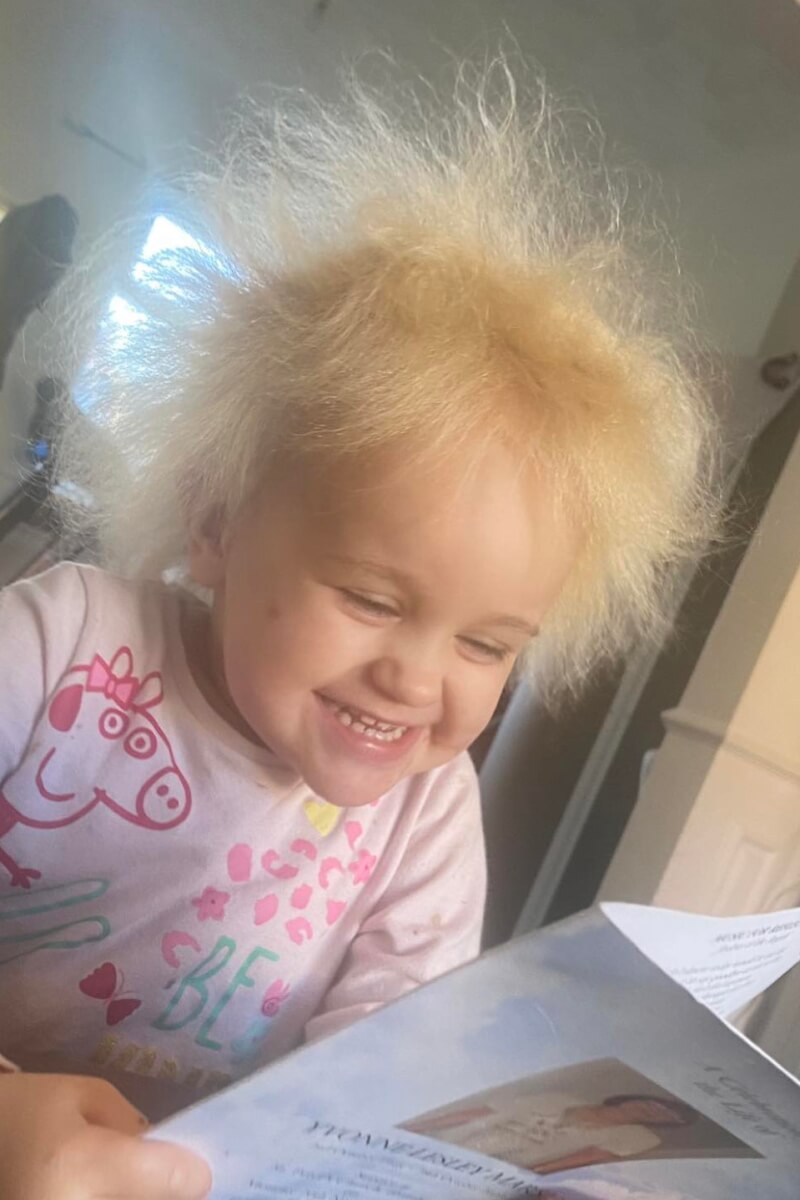
Nellie’s mother had never heard of the rare condition before and only realized her daughter could have the disorder after some of her relatives told her about it. Even though she’s not been officially diagnosed yet, Lydia says people keep telling her that Nellie must have the condition.
“I hadn’t heard about it until a couple of my family members told me about it. She’s not been diagnosed with it, but people have been telling me that she’s got it. Apparently, it is genetic, but I’ve got straight her, and her dad has got curly hair, so nothing like Nellie’s,” the young mother continues in her post.
The mother-of-one says that Nellie “gets a lot of attention” nearly every time she leaves the house because of how unique her hair is. However, Bunch says that the youngster “doesn’t really realize” that she has the rare condition because she’s so used to her own hair.
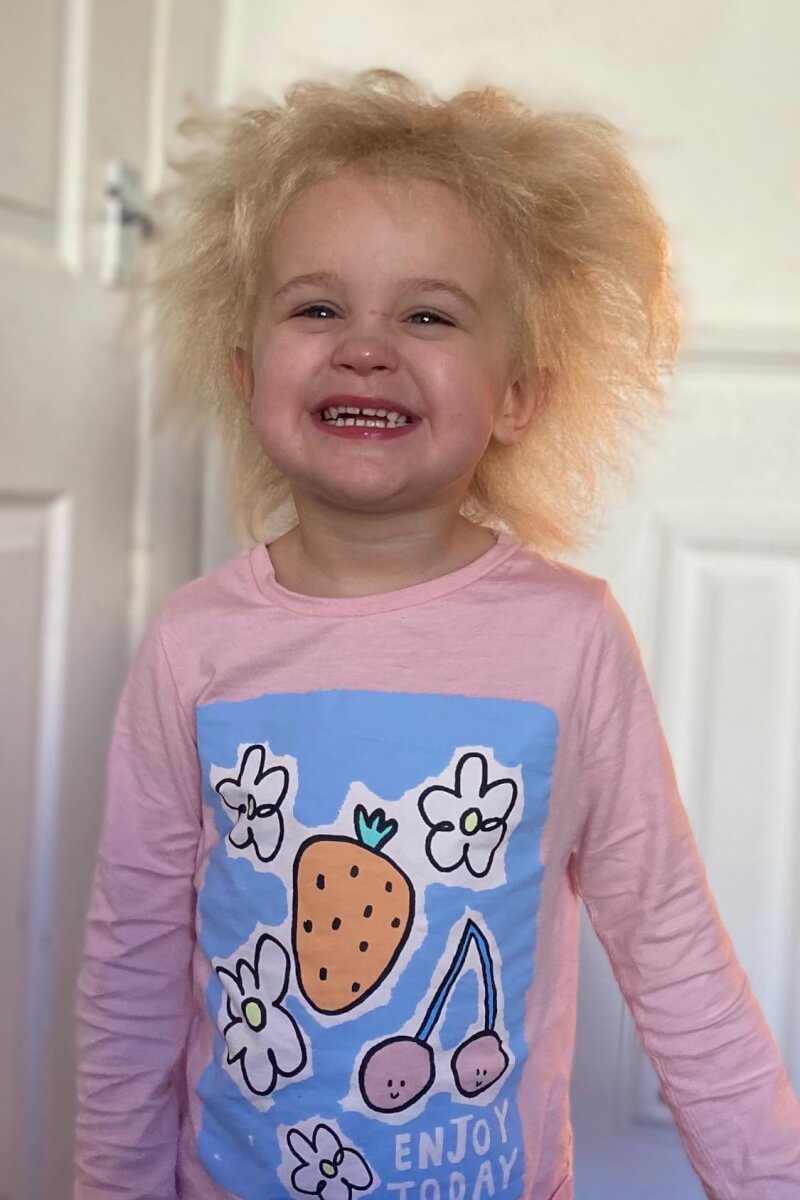
“People always say they’ve never seen hair quite like this – they love it. She gets a lot of attention because of her hair. Nellie doesn’t really realize, but I’ve shown her some pictures of her hair, and she said ‘my hair is big,'” Bunch adds.
“I don’t think she really understands yet because she’s so used to it. Nobody ever says anything rude; they love it, and she gets a lot of compliments from people.”
According to researchers from the Cleveland Clinic, if Nellie has this condition, it’s likely she’ll grow out of it by the time she’s an adult. Scientists have found that a mutation to any of these three genes can cause a case of Uncombable Hair Syndrome, PADI3, TGM3, and TCHH.
SWNS writer Izzy Hawksworth contributed to this report.
